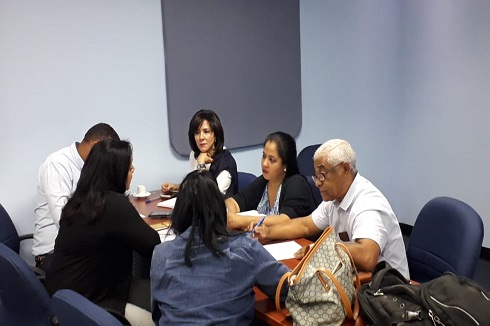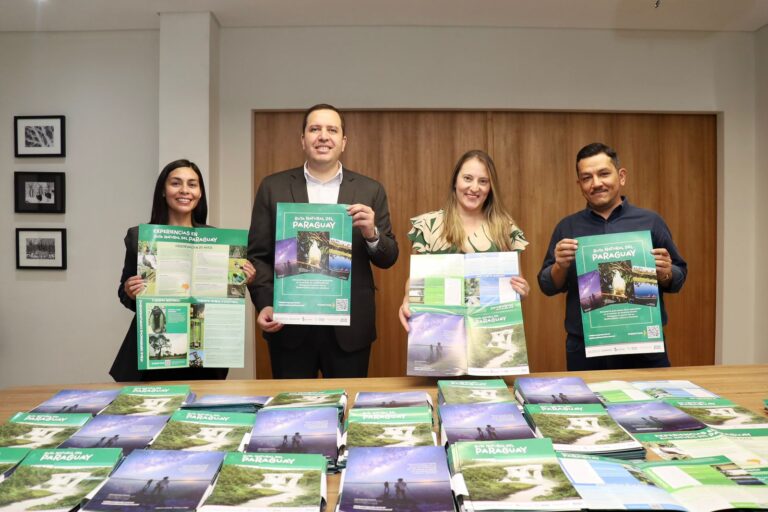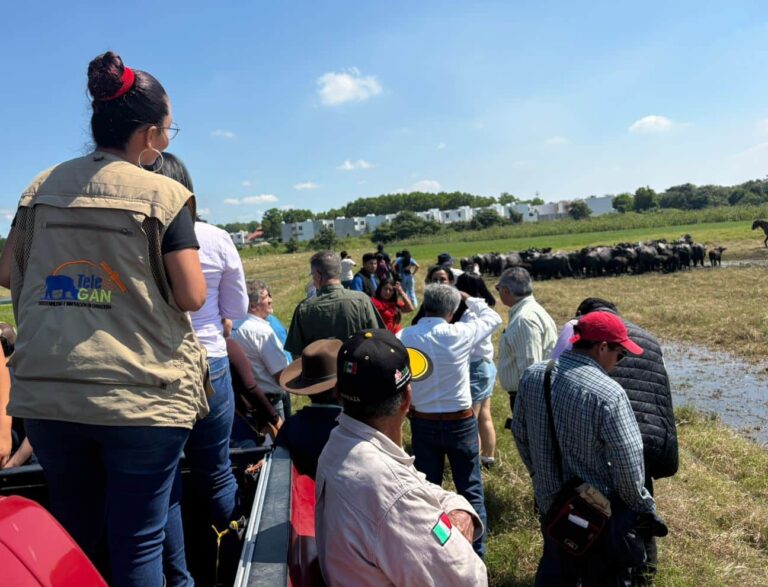Directors and technicians of the Department of Animal Health, Plant Health and Food Safety identify the training needs for the strengthening and updating of the technical competencies of its members

identify the necessary training.

The workshop responds to the request made by the Minister of Agriculture, Mr. Osmar Benítez, when IICA presented the results of the DVE tool. He requested IICA to build a training plan suitable to the current needs, based on the result of the tool and the current Ministry requirements.
The event, carried out on December 13th, included the participation of Porfirio Álvarez, director of the Department of Plant Health and Dr. Lissette Gómez, director of the Department of Animal Health, as well as technicians from both departments and the Department of Food Safety. Ana Marisa Cordero, Specialist in Agricultural Health and Food Safety of IICA Headquarters also attended the workshop, and was responsible for the application of the tool.
Gaudy Suzaña, Specialist in Agricultural Health and Food Safety of the IICA Dominican Republic Delegation led the workshop and presented a summary of the results obtained by the application of the DVE tool, emphasizing that the service should strengthen the component of technical capacity and human and financial capital. Once the subject was introduced, the officials of each department worked on a brainstorming session to identify training needs topics, the beneficiaries, the possible sources of financing (external or internal) and the suggested date for completion.
In his presentation, Mr. Porfirio Álvarez stated that, given the opportunities for improvement and recommendations outlined in the DVE, changes have already begun in the department, such as the access to a pest database, the updating of information, among others. However, he emphasized that a sustainable and periodic training plan is required in order to keep the skills of the technicians up to date, thus, he welcomed the initiative and committed to support for the execution of the needs identification exercise.

needs identification with the officials of the
different divisions.
As a result of the brainstorming among the technicians, it was possible to obtain approximately fifteen needs identified for each area that will serve as input for the preparation of a Training Plan proposal that will be submitted to the Ministry, as well as technical cooperation opportunities in the that IICA can collaborate with the strengthening of the services were identified.
More information: Gaudy Suzaña, Specialist in Agricultural Health and Food Safety, gaudy.suzana@iica.int











